Food in Greece is not complete without a drink or two. Here are some alcoholic and non alcoholic Greek drinks to enjoy during your holiday.
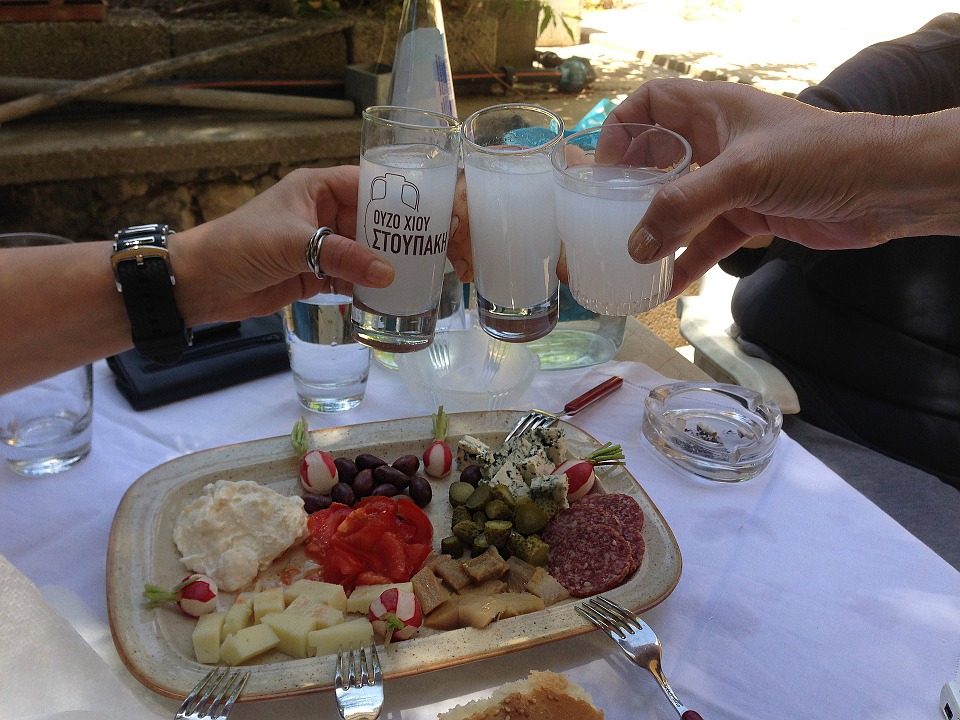
What to drink in Greece
There are plenty of Greek drinks to try when you visit Greece. Most visitors will taste the world-famous ouzo, the distinctive retsina and the Greek Mythos beer. These alcoholic drinks perfectly complement the delicious Greek food.

Other travellers will adore the numerous types of coffee. The Greek coffee culture is huge, and you will find frappe, freddo espresso and Greek coffee among others.
Finally, some people will stick to non alcoholic Greek drinks. There are plenty of fresh juices, and herbal teas are widely available.
Let’s check the most famous Greek drinks, one by one.
The King of Greek drinks – Ouzo with meze
For most people, the first Greek alcoholic drink that comes to mind is ouzo.
Ouzo is one of Greece’s strongest drinks. It is made out of distilled grains, along with several local herbs and spices, including aniseed and perhaps a few others.
The alcohol percentage in ouzo usually varies from 37.5 to 50, and it’s an incredibly sneaky drink. An ouzo hangover can be horrible, and combining it with beer or wine is a recipe for disaster. Yep, this is me talking from experience.
There are several well-known brands of Greek ouzo. My favourite is Plomari, which comes from Lesvos island. It’s easy to find it in most tavernas in Greece. Other popular brands include Varvagianni, Mini and 12.
Ouzo goes well with seafood and most savoury dishes. Greeks usually drink ouzo with added ice and water, to make it lighter. It tastes much better if you drink it by the beach! Here is some more information about ouzo, Greece’s national drink!
Raki / tsikoudia / tsipouro
You may have heard of ouzo, but how about raki? Τhis is another strong alcoholic drink, widely produced and consumed all around Greece.
Depending on the region, raki is also known as tsikoudia or tsipouro. You will find two types of tsipouro – with anise, and without anise.
Tsipouro is similar to several other European drinks. The Italian grappa, the Spanish orujo, and the popular Balkan rakija are all comparable.
We normally serve it in a shot glass, straight from the freezer. If it’s too strong for you, use a bigger glass and add some ice.
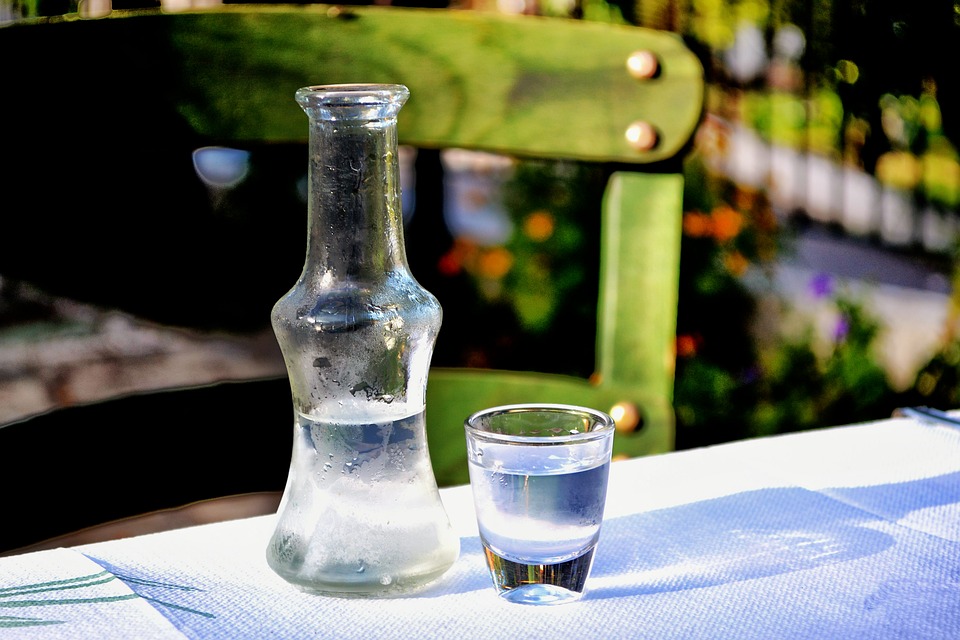
How to make tsikoudia
Tsikoudia is a distillation product. After grapes have been pressed to make wine, the residue is boiled and distilled further. The end product is a clear, strong drink containing 40% – 60% alcohol.
Raki is often home-made, and its production is a popular activity in several areas, most notably the island of Crete. The distillation process normally happens in October and November.
If you are visiting during this time, ask around for kazanemata – it’s a unique cultural experience!
The raki-making procedure is really an excuse a big fiesta. Greeks and the lucky visitors get together to taste the end-product and feast on local dishes. Celebrations can go on for days!

Where to drink Greek raki
A type of Greek taverna that you will rarely see in big cities or touristy places, is a tsipouradiko / rakadiko. These places focus on serving the popular drink alongside some delicious food.
The idea is that you order and pay for your drinks, and food comes along as a small meze side dish. The more raki you drink, the more expensive the meze that accompanies your order.
After ordering a few rounds, it’s not unusual to see shrimps and lobster coming up on your table. This is an excellent way to discover the Greek culture. You can even try to speak some Greek!!!
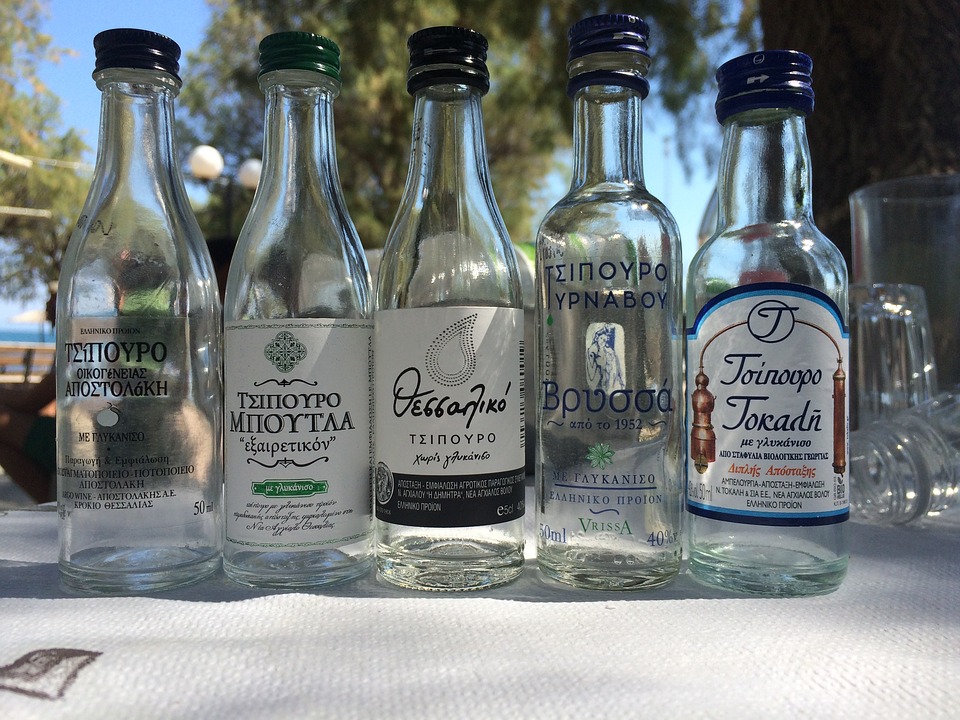
Rakomelo
Rakomelo is a strong alcoholic drink which is perfect in winter. The recipe is simple: you heat up raki, honey, cinnamon and cloves. It is sweet, strong, and absolutely delicious!
Rakomelo has been used as traditional medicine in many areas of the country, including the islands of Amorgos and Crete. Surely, this means that it must be good for you.
With that said, rakomelo is one of the sneakiest Greek drinks. Make sure you’ve eaten something beforehand, especially if you are not used to strong drinks, and try sipping it rather than gulping it down.
Last tip: Both ouzo and raki are great souvenirs from Greece.
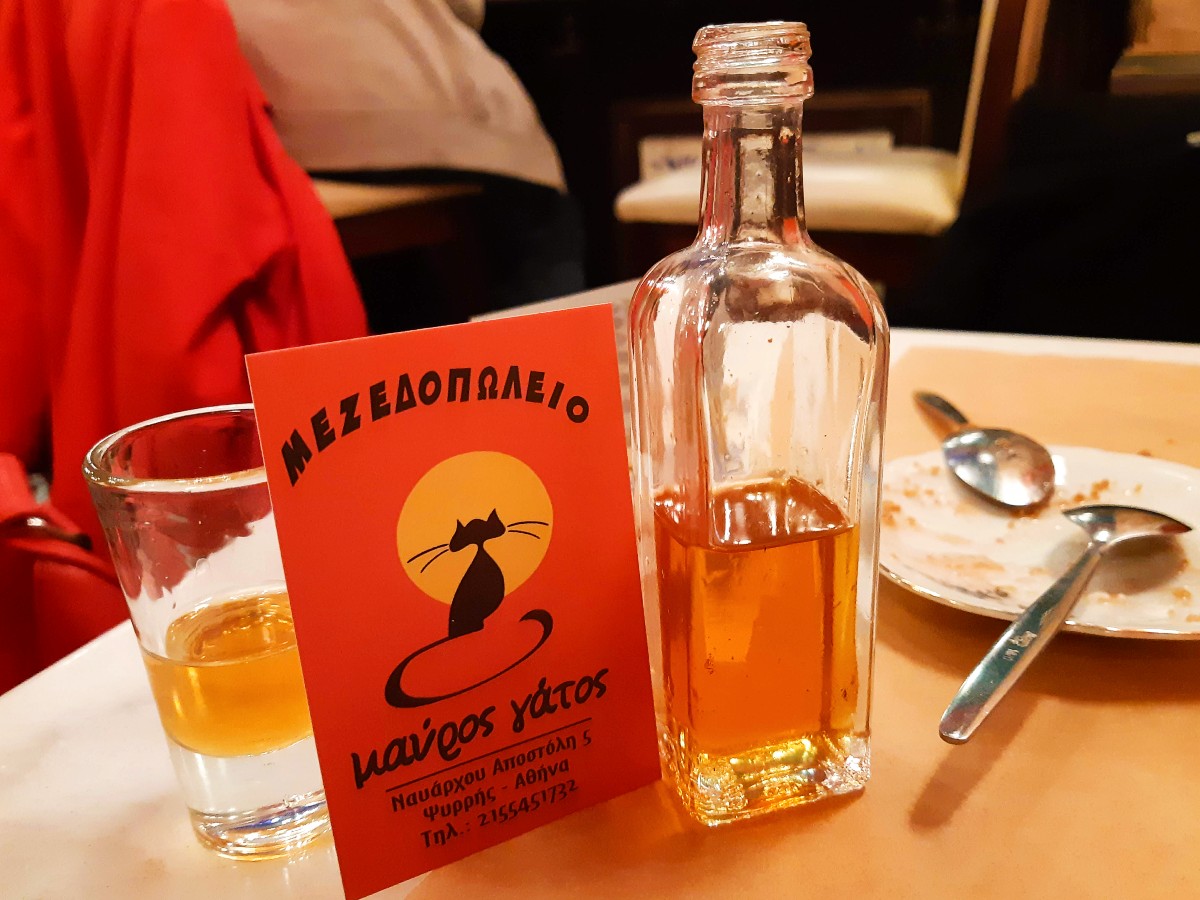
Greek Beer
Beer is a popular beverage in Greece, especially during summer. There are plenty of light, refreshing beers that you can find everywhere.
Some of the most common Greek beers are Mythos, Fix, Alpha and Vergina. Along with international brands like Amstel, Heineken and Kaiser, they will ideally complement a nice meal by the beach.

If you are interested in specialty beers, you’ll be glad to know that Greece has dozens of microbreweries. Most of them opened within in the past decade or so, all around the country.
The best place to taste some of these Greek beers is a dedicated beer restaurant. You will find a large selection of unique and tasty IPAs, weiss, stouts and pilsners.
Some of my favourite microbreweries include Voreia, Septem, Santorini Brewing Company, Chios, Piraiki, and Delphi. Try them all and let me know which was your favourite!

Greek Wine
Ask any visitor if they know any Greek wines, and they will probably come up with one word – retsina. This famous white wine contains resin, which adds the distinctive flavour.
Now, while retsina is one of the most famous Greek wines, it’s definitely not the most common. In fact, I don’t know any Greeks who actually like it. I’m still not sure why retsina is so popular among foreigners!
Apart from retsina, there are hundreds, if not thousands, of types of wine around Greece. Every area grows its own local species of grapes, which can often be combined, so there is a huge variety.

Winery tours in Greece
Regions that are particularly famous for their wines are the islands of Santorini and Crete. You can take this great winery tour in Santorini and learn everything about their distinctive wines!
The Peloponnese is also home to several traditional wineries, which would be best explored in your own rental vehicle.

White wines such as Moshofilero, Athiri and Roditis are light and refreshing. If you are more into reds, search for Agiorgitiko, Mavrotragano and Xinomavro. Or ask around in the area you are visiting for the best local varieties to taste.
As a rule of thumb, a decent bottle of wine would cost 15-20 euro upwards if served at a restaurant. You will often find that inexpensive house wine accompanies any meal perfectly, especially if you are drinking it by the coast.
Fun fact – in many tavernas, you won’t find a proper wine glass. Instead, we use small, low glasses, or even mugs.
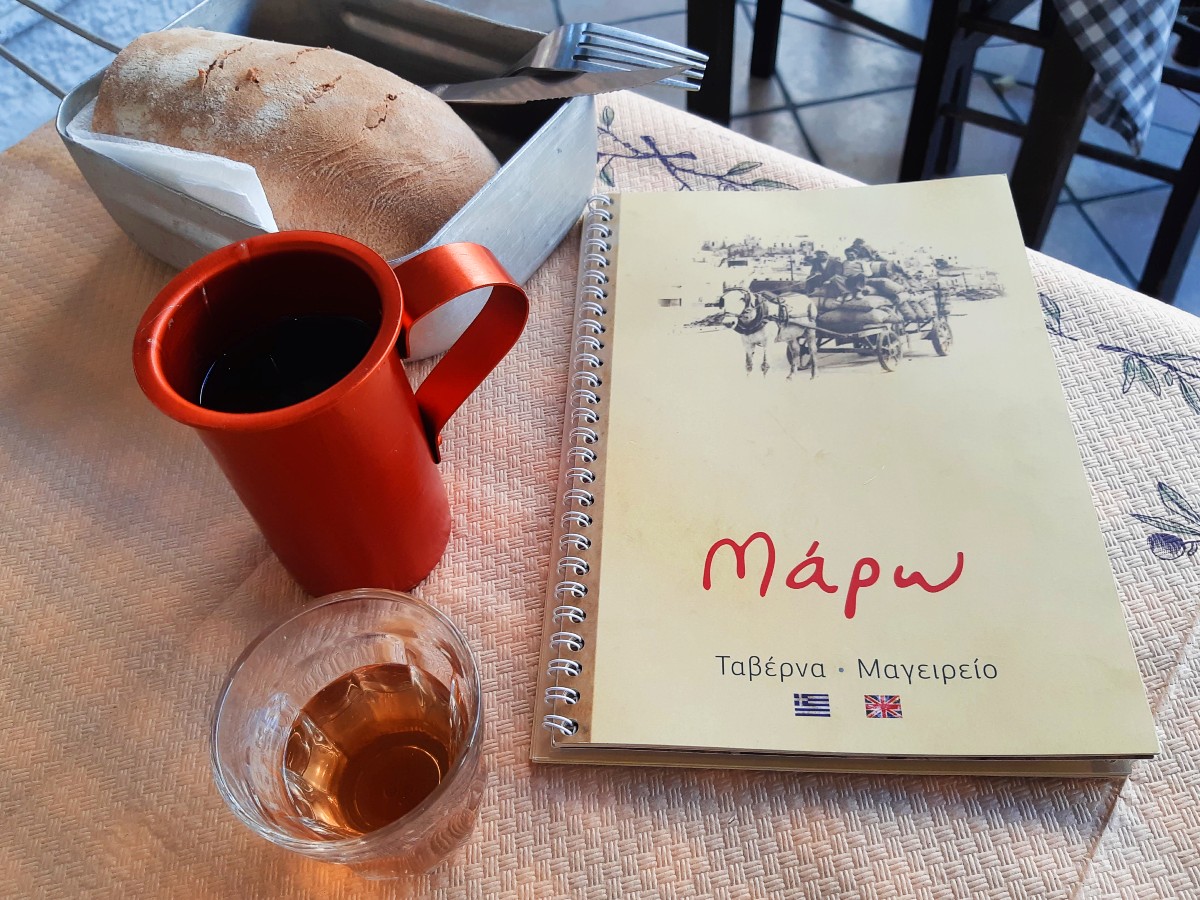
Greek liqueurs and sweet wines
There are many flavoured liqueur drinks in Greece. In recent years, mastiha and tentura have been gaining popularity. Both of them are sweet, strong and highly addictive.
Mastiha is a unique liqueur, flavoured with the resin gathered from the mastic tree. This is a small endemic tree which only grows in Chios island. Mastic itself aids digestion, which gives you a good excuse to try it.
This typical Greek drink isn’t always easy to find. If you are keen on tasting the unique mastic flavour, search for mastiha chewing gums. You can find them at most supermarkets and kiosks.
Tentura is a cinnamon-flavoured liqueur, used as a digestive drink. It is produced mainly in the Peloponnese, and it’s not common in bars or tavernas. You can find it in specialized shops selling alcoholic drinks, which we call “cava”.
Many regions in Greece produce signature liqueurs, using the local ingredients. Kitro from Naxos and Qumquat from Corfu are just two examples.
In addition to the liqueurs, it’s worth looking out for Greek mavrodafni and vinsanto. These are made from sun-dried grapes, and will remind you of Port wine. Check them out when you visit Greece.

Greek Frappé and the concept of cold coffee
“Cold coffee? Are you mad?” – This is many people’s first reaction to one of the most common types of coffee in Greece, frappe (or, rather, frappé). However, beware, because once you’ve tried it, you might get hooked!
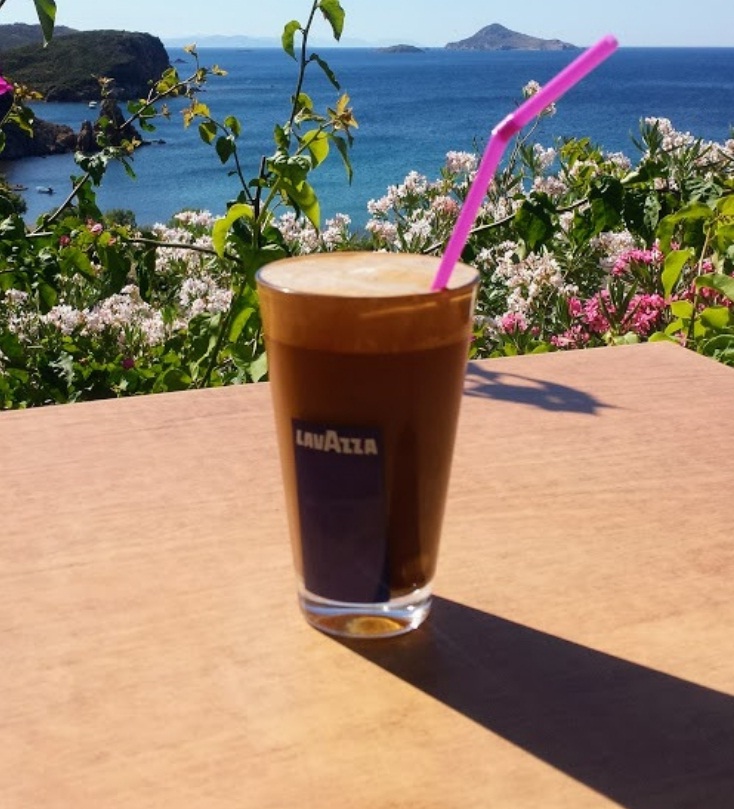
The recipe for a frappe is very simple. The only ingredients are instant coffee, sugar and water. They are all blended in a special frappe-maker, and a thick foam is produced. Then you add a few ice cubes and a straw.
The frappe tastes better with milk, but you can skip it if you prefer. You will also find a version with ice-cream.
Cafés in Greece serve several other types of cold coffee, like freddo espresso or freddo cappuccino. Still, I definitely suggest trying the frappe!
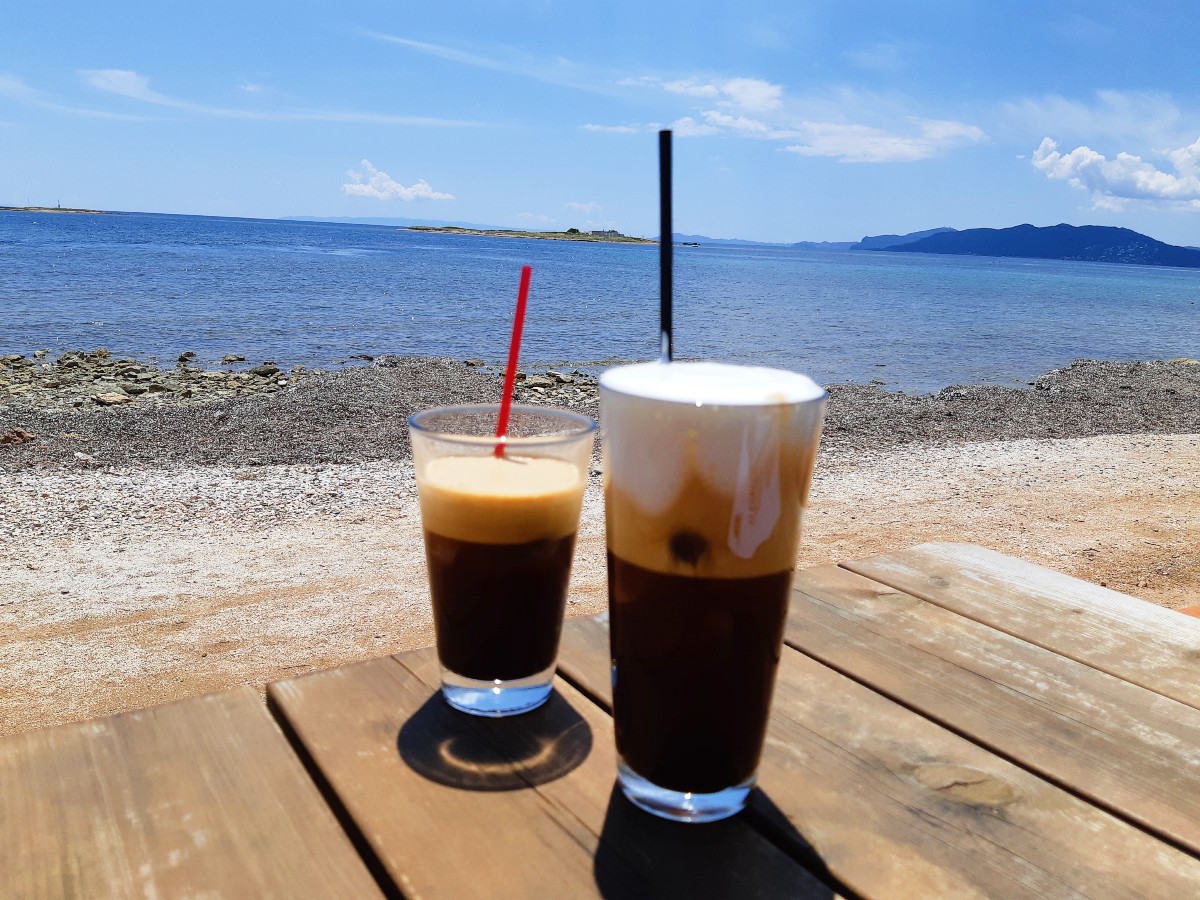
That is not to say that hot coffee is not popular, especially in winter months. Espresso, cappuccino and filter coffee are all available. In addition, you can find hot instant coffee and the famous Greek coffee.
Greek coffee
Trying to find the difference between a “Greek coffee”, and a “Turkish coffee”, will probably lead you nowhere. Both countries claim that this thick, strangely textured sipping coffee is their own invention.
In fact you can find a similar type of coffee in several countries. When you are in Greece, it’s best to call it “Greek coffee”.
Try it sketo (no sugar), metrio (little sugar) or glyko (a lot of sugar). Just beware – the thick, mud-like paste at the bottom of your cup is not drinkable. You should leave it right there in the cup!
Tip – coffee in Greece is a huge thing, much bigger than the beverage itself. It’s about taking time to enjoy your drink slowly, while sitting at an outdoors café, chatting with friends and looking at passers-by.
Much like Greek dinners, the Greek coffee culture is about spending time with others, taking time to think and enjoying the simple pleasures in life!
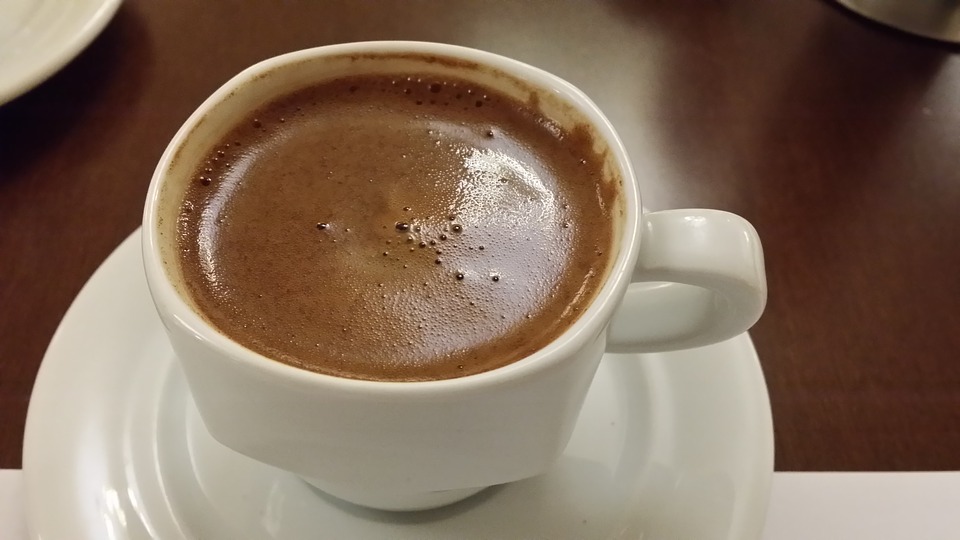
Mountain tea – Tsai tou vounou
Tsai tou vounou, or mountain tea, is a herbal tea collected on the mountains. We use it to make a hot drink with a distinctive flavour. You can drink it as it is, but many people add honey or sugar.
There are several other herbs that can be used to make herbal teas, like camomile or linden, but tsai tou vounou is the most traditional one. It also makes for a special gift to take back home.
Orange Juice – Portokalada
Many people will say “Well, we have orange juice where I come from. It comes out of a carton”. Sure thing – however, real orange juice made out of real Greek oranges is an entirely different story.
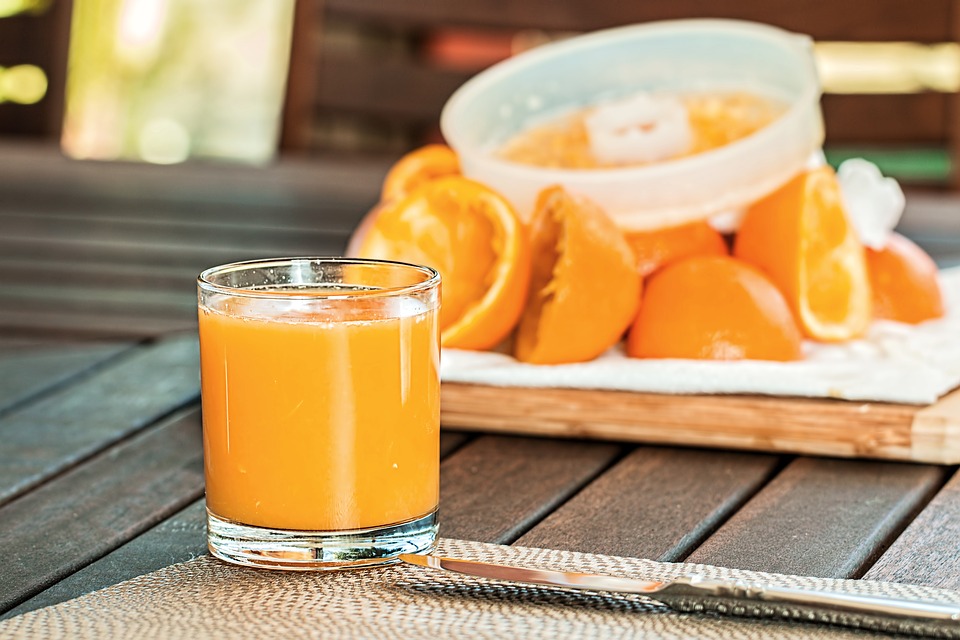
With oranges being available pretty much all year round, the Greek portokalada is a childhood memory for many Greeks, and a delicious start to your day. Try it once, and I guarantee you’ll be shocked by the difference in flavour!
Lemonade – Lemonada
Lemonade is one of the most refreshing summer drinks and it’s popular all around the world. As it has no alcohol, it’s a great option if you are visiting with children.
In recent years, home-made lemonade has made a comeback in Greece. You can find it in many bars and cafes. After all, lemons are super common here.

A traditional lemonade recipe contains lemon juice and sugar. These days, you will find several versions, with mint, ginger or even mastic. Think of it as a virgin mohito with a twist!
FAQs about drinks in Greece
Here are some questions that people ask about drinks in Greece:
What are Greek alcoholic drinks?
Some of the most famous Greek alcoholic drinks are ouzo and tsipouro. In addition, you will find hundreds of types of wine and several local beers.
What is the national drink of Greece?
Ouzo is considered to be the national drink of Greece. It is a strong alcoholic drink made from distilled grains or berries, and flavored with aniseed. It’s best to mix ouzo with ice or water, and have some food along.
What is the most popular drink in Greece?
While ouzo is considered the national drink of Greece, many other drinks are popular. A refreshing beer is common during summer, while wine and tsipouro, also called raki, are also consumed. In addition, most bars serve cocktails with rum, vodka, tequila or other imported spirits.
What drinks go with Greek food?
The most common drinks to accompany a meal are beer, wine and tsipouro / raki. Ouzo is also popular, but people tend to have it with specific dishes.
What is the legal drinking age in Greece?
While drinking in bars / clubs is not allowed for people under 18, this doesn’t apply for private venues, e.g. a house. Overall, the law isn’t strictly enforced and it’s not uncommon to see teenagers with a can of beer.
More articles about Greek food
I hope you’ve enjoyed my guide to drinks in Greece! You might also be interested in these other articles:
- Everything you need to know about food in Greece
- How to order food in Greece
- Useful Greek words and phrases

Hi! I am Vanessa from Athens, and I love helping people discover more about Greece. Food and drink is an integral part of the Greek culture. The above drinks are typical of Greece, and you will find most of them everywhere. Make sure you try some of them when you visit Greece! Follow me on my social media for more Greece-related news and inspiration:
